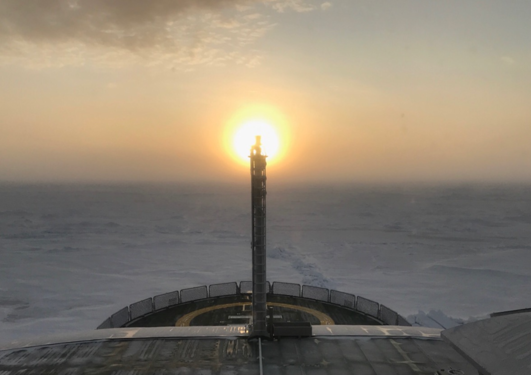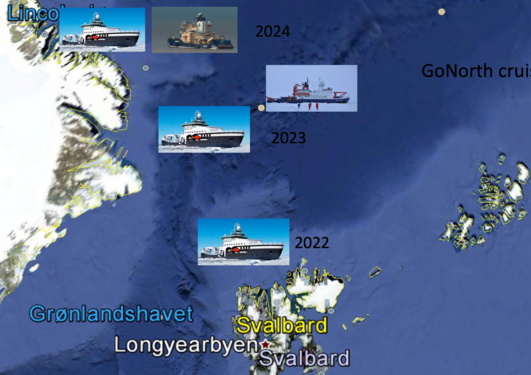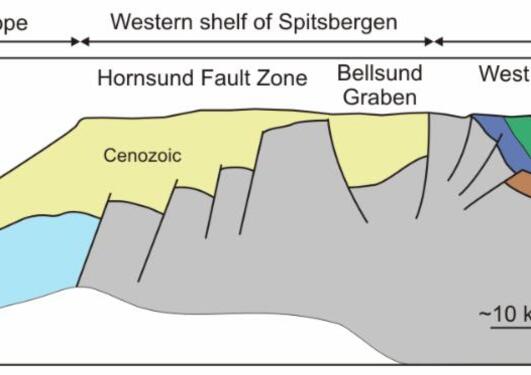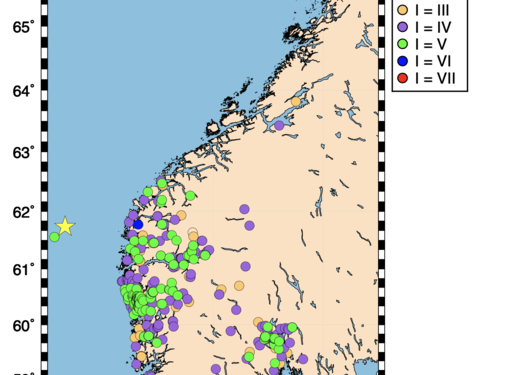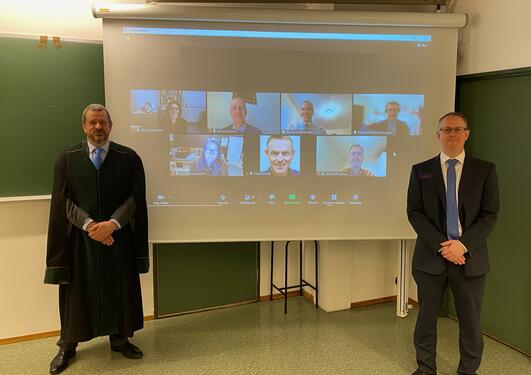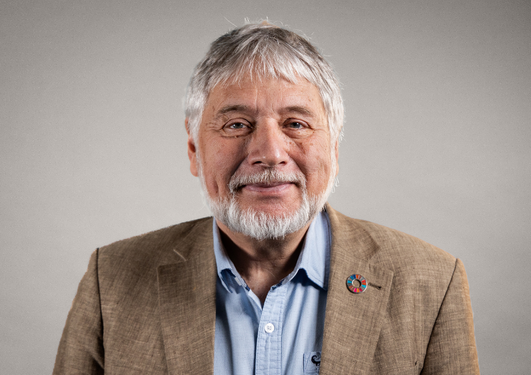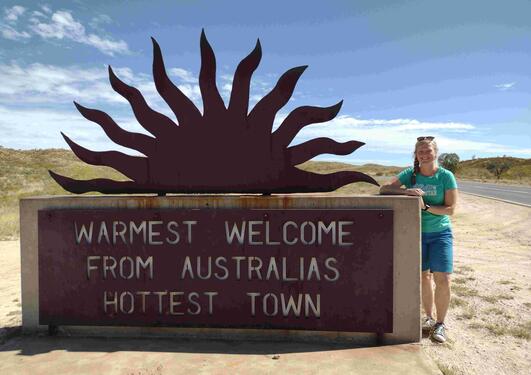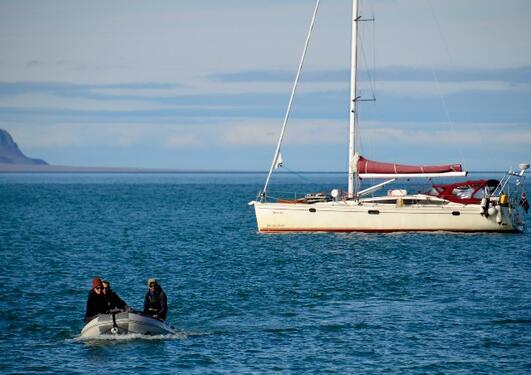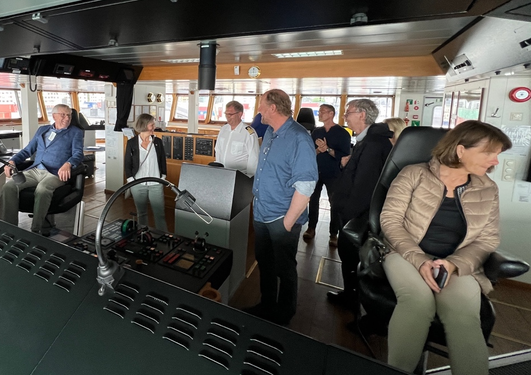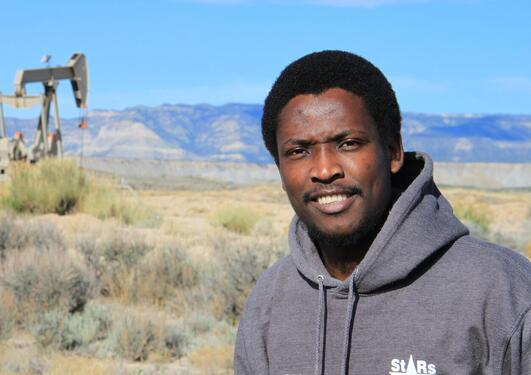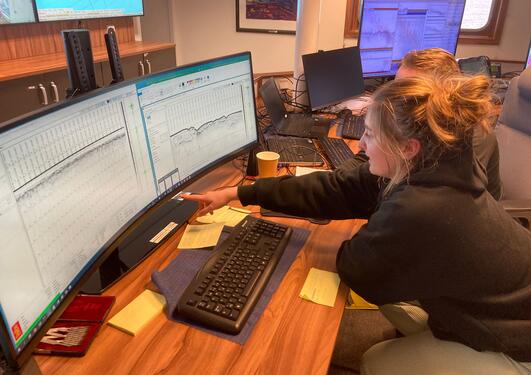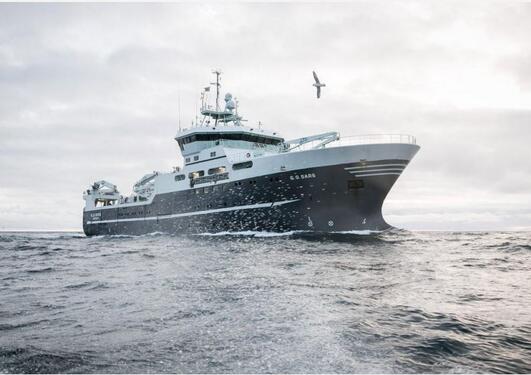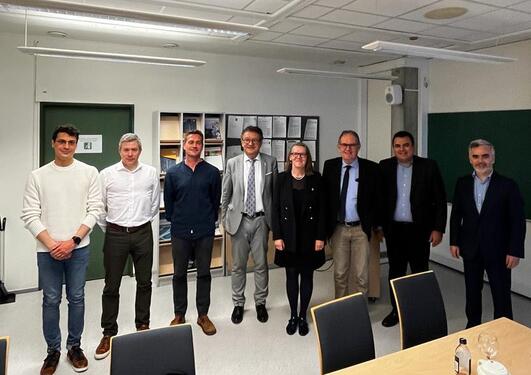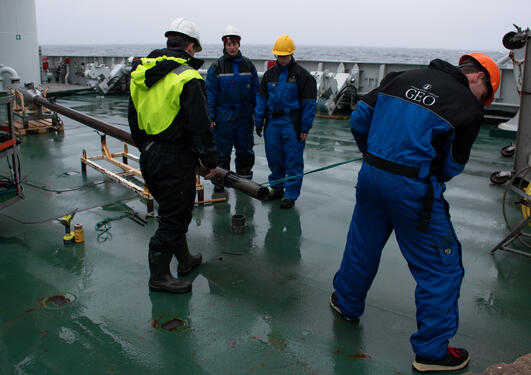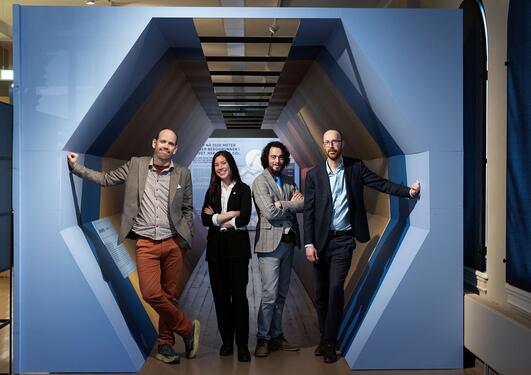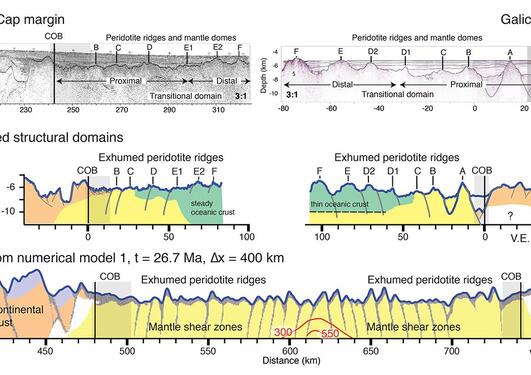News archive for Department of Earth Science
An international team of researchers, including Eoghan P. Reeves of the Department of Earth Science and Centre for Deep Sea Research, has this week in Nature Communications published its first findings on the geological and geochemical setting of the Aurora hydrothermal vent system, the first seafloor hot springs located ~4km under thick Arctic sea ice.
The geophysics group (Rolf Mjelde) has been involved in GoNorth. GoNorth (Geosciences in the Northern Arctic) is a Norwegian geoscience project for exploration of The Arctic Ocean. 13 Norwegian institutions participate, and work is being done towards establishing wide international collaboration.
The Svalex course was run from 2001 to 2014. The geophysics group has been an active contributor to this course.
On 21 March a relatively strong earthquake happened just off the coast of Bergen. This event was felt in large parts of Norway.
Ten geophysics bachelor and master students participated in a field course in Kiel (Germany) in August.
On 15 December 2021 Kristian Jensen successfully defended his thesis on seismic modeling and imaging.
Climate scientist Eystein Jansen has been elected Vice President of the European Research Council (ERC). He is the first Norwegian researcher to join the leadership of the elite division for European research.
While the majority of the Centre for Deep Sea researchers have gone out to the Norwegian Sea this summer to study seafloor processes and hydrothermal vents, Desiree Roerdink flew to the other side of the world to do exactly the same thing – in rocks that are more than three billion years old.
On Friday 17. June Edoseghe Osagiede defended his thesis "The structural evolution of rift fault networks: From pre-existing structural controls to topological characterisation of the northern North Sea Rift System"
The R/V G.O. Sars has reached day 5 of its 10 day cruise to the offshore wind sites Utsira Nord and Sørlige Nordsjø II in the North Sea.
Friday 10th of June R/V G.O. Sars set its course towards the southern North Sea to start UiB's first scientific cruise to investigate ground conditions for foundations and anchoring of offshore wind farms.
The first week in June UIB GEO has been hosting the Summer School for the Marie Curie Innovative Training Project "S2S Future: Signal Propagation from Source to Sink for the Future of Earth Resources and Energy". 13 PhD candidates have come from universities in France, Germany, UK, Netherlands, Norway, Spain and Switzerland to learn and work together in western Norway.
Researchers demonstrate how we can make use of pores to solve some of the greatest challenges before us – such as the global climate crisis.
Researchers from the Department of Earth Science of the University of Bergen explain in a paper published in Nature Communications how exhumed mantle domes form at magma-poor continental margins and at ultra-slow mid-oceanic spreading systems controlled by frictional shear zones.
Pages
- 2025
- 2024
- 2023
- 2022
- 2021
- 2020
- 2019
- 2018
- 2017
- 2016
- 2015
- 2014
- 2013
- 2012
- 2011
- 2010
- 2009
